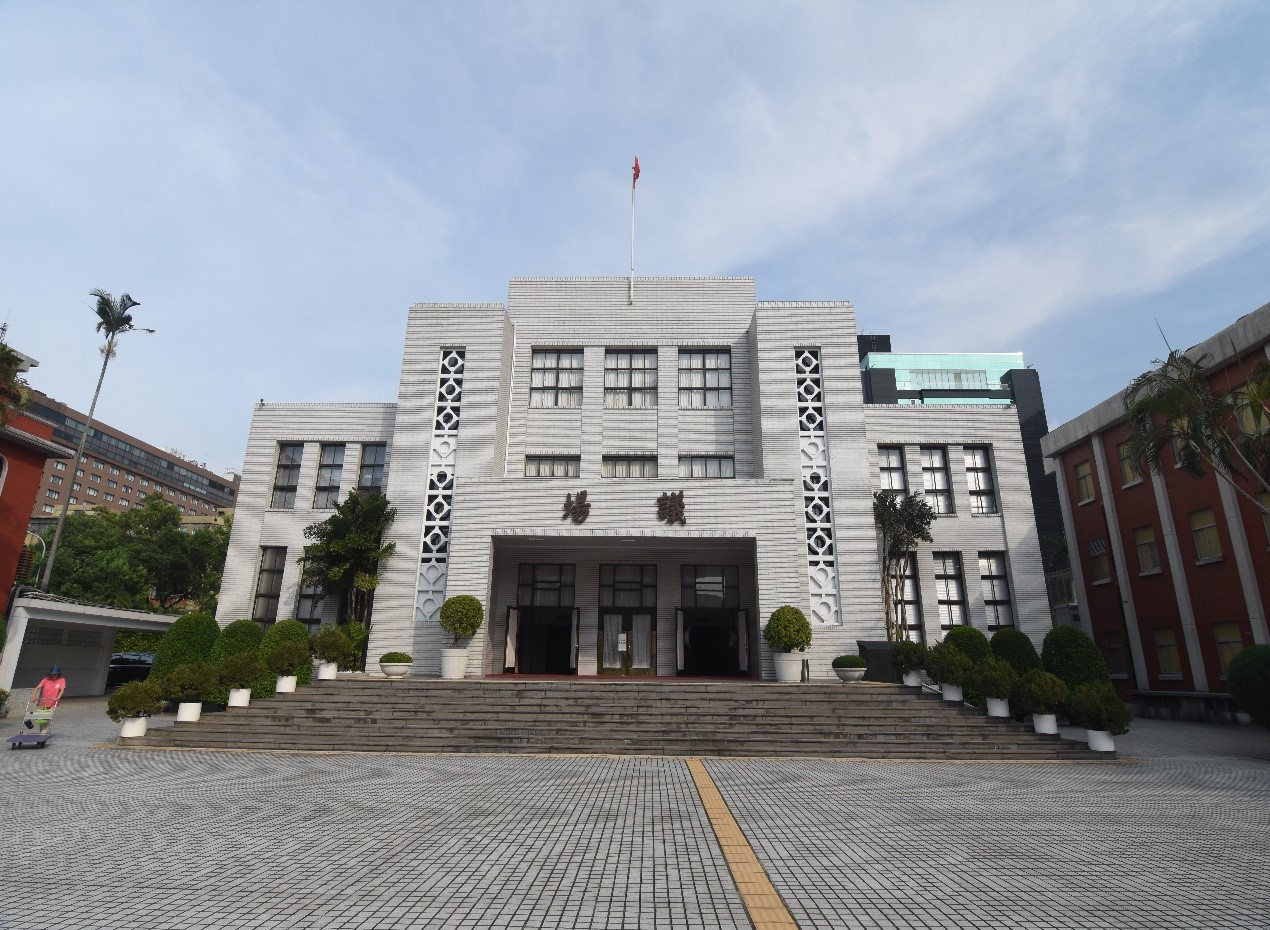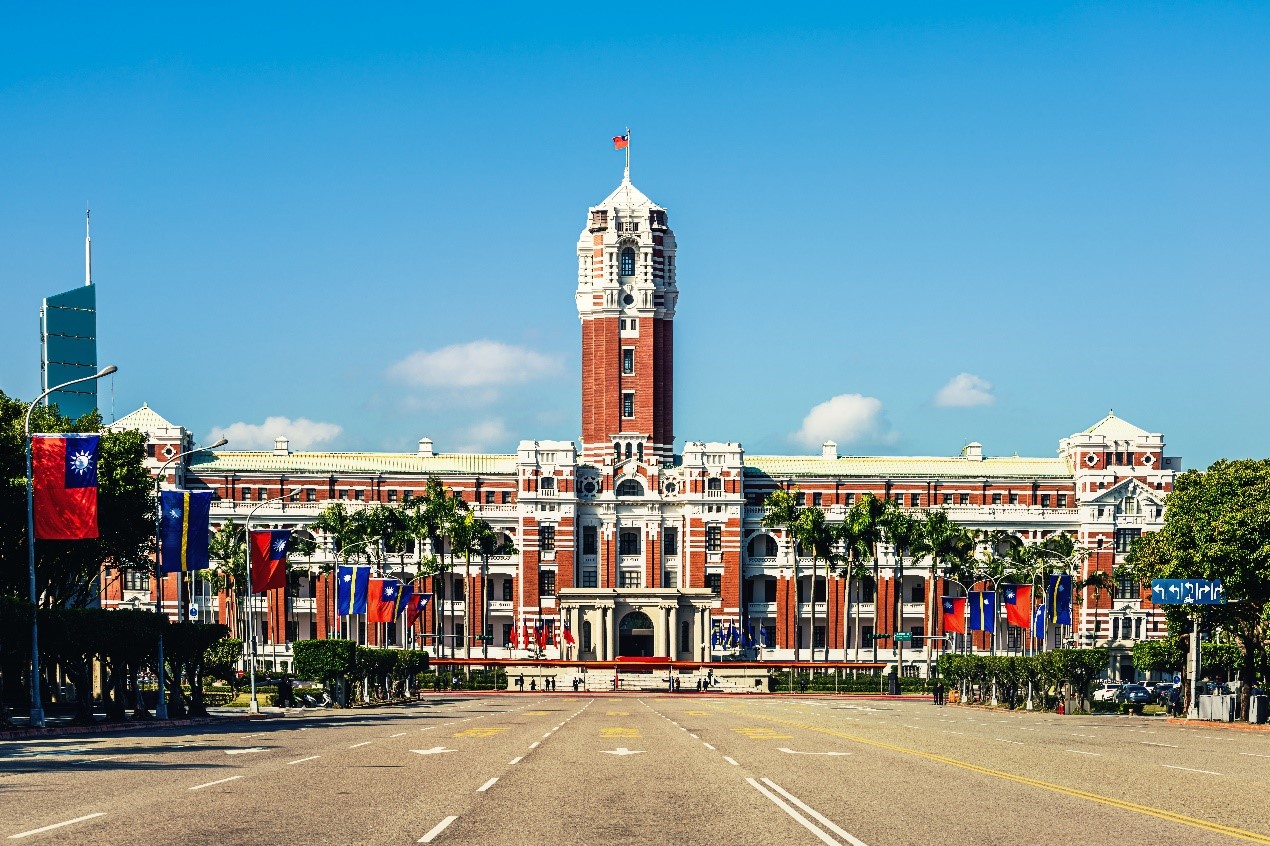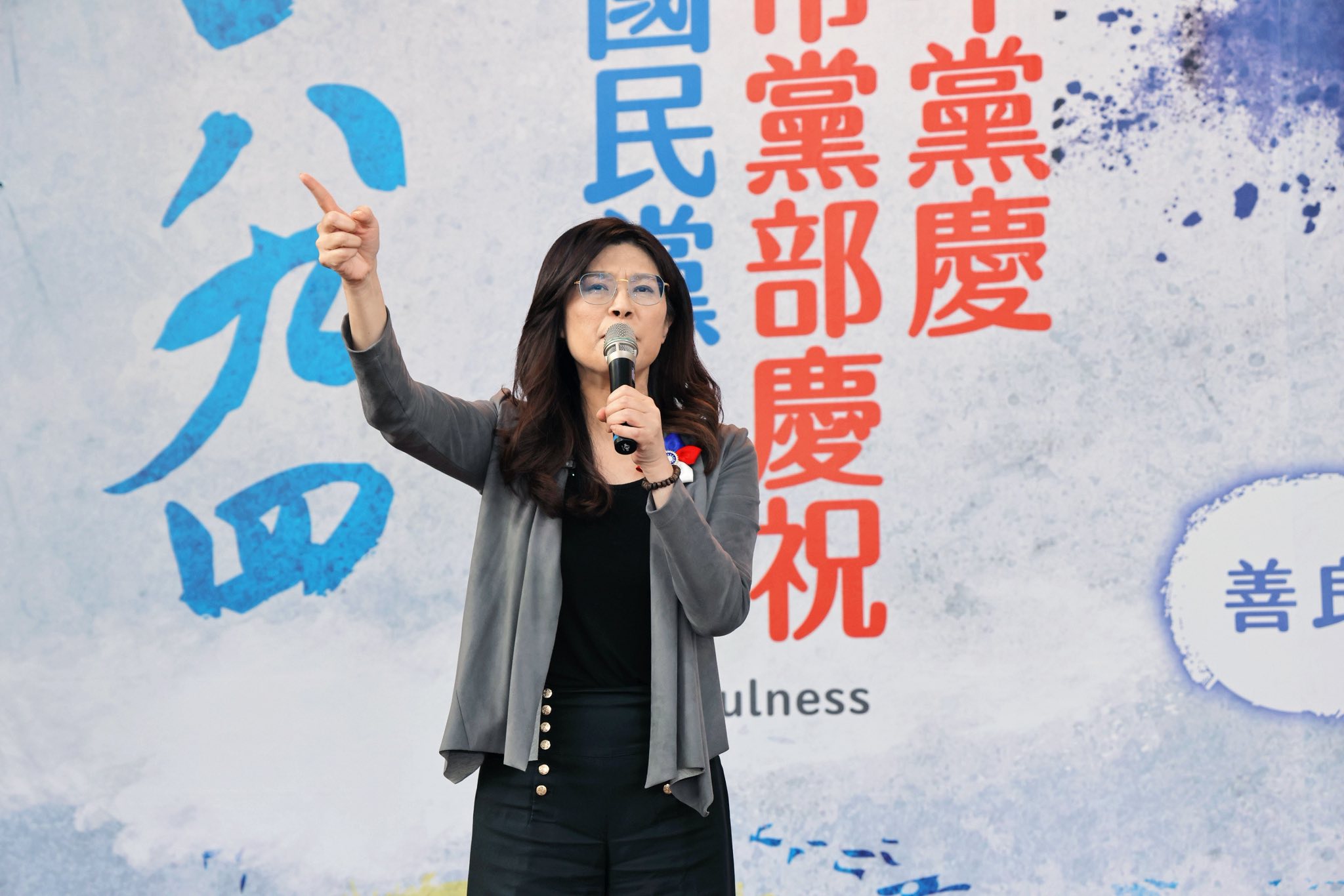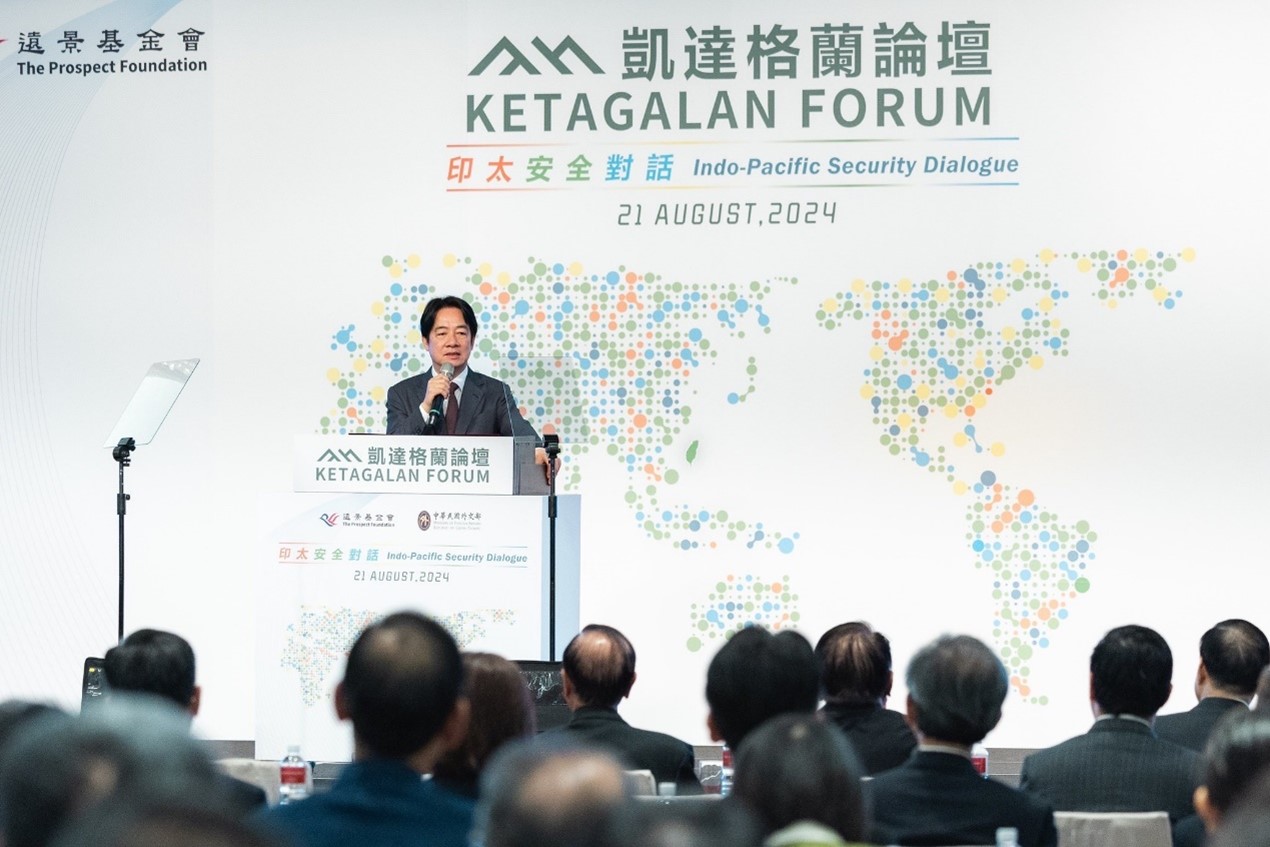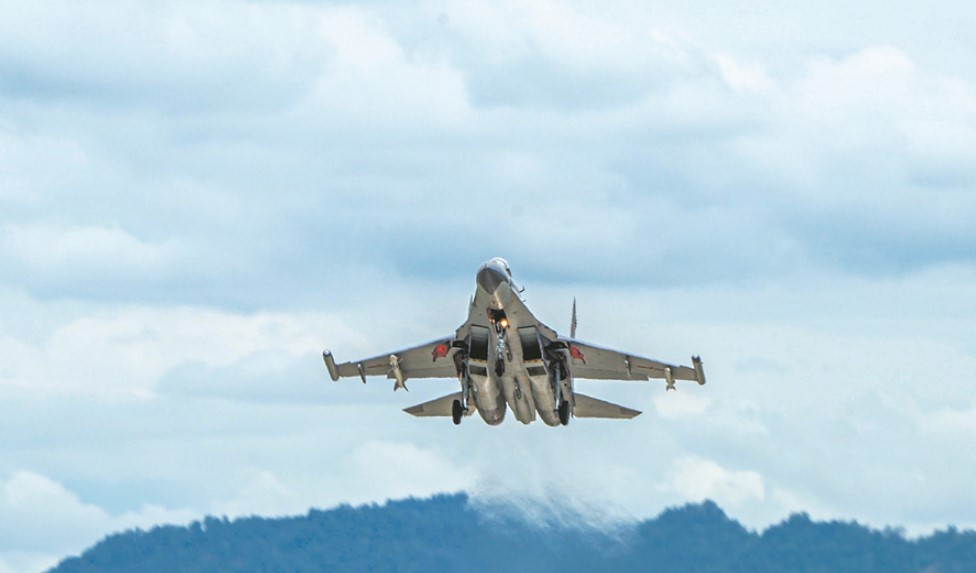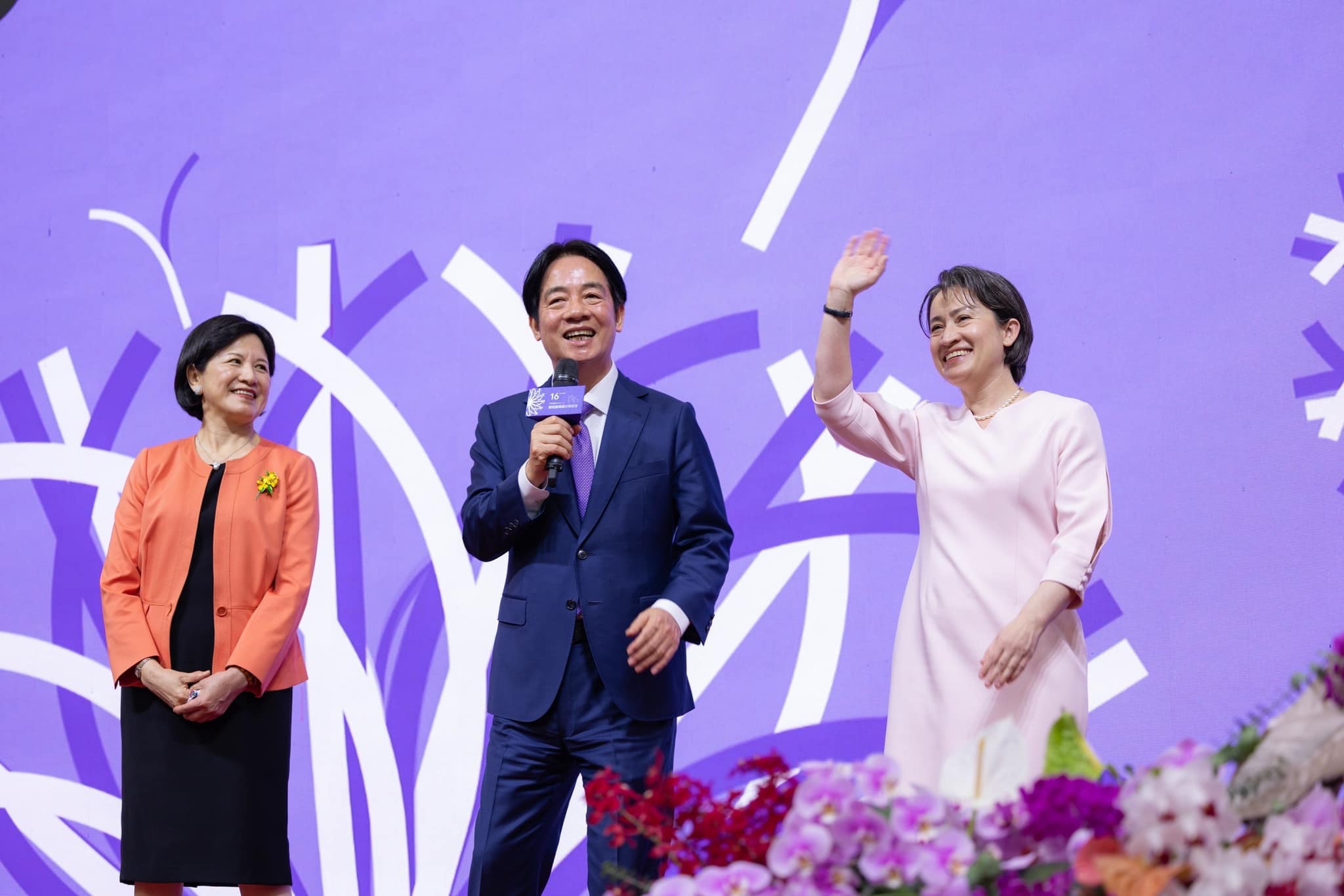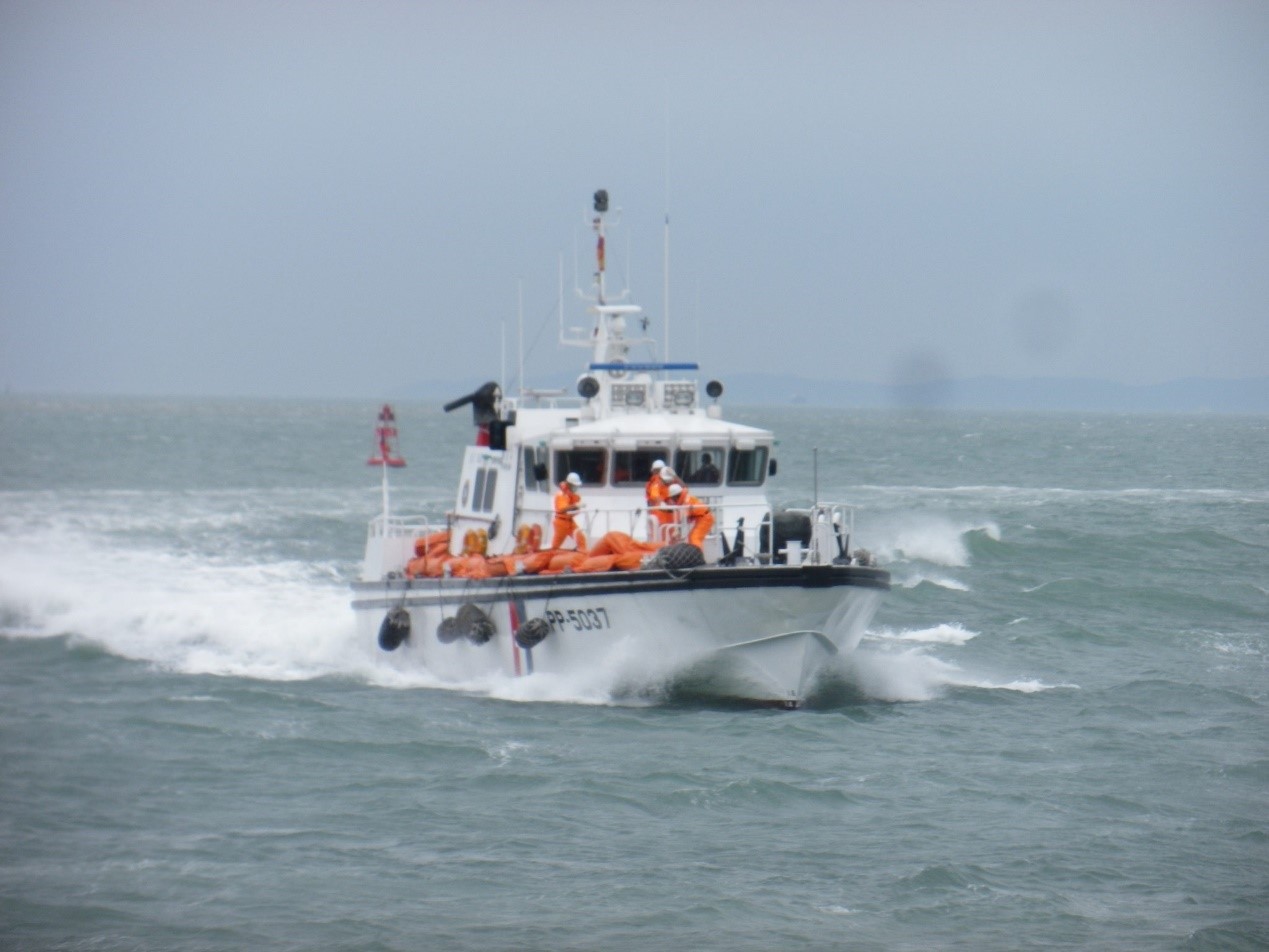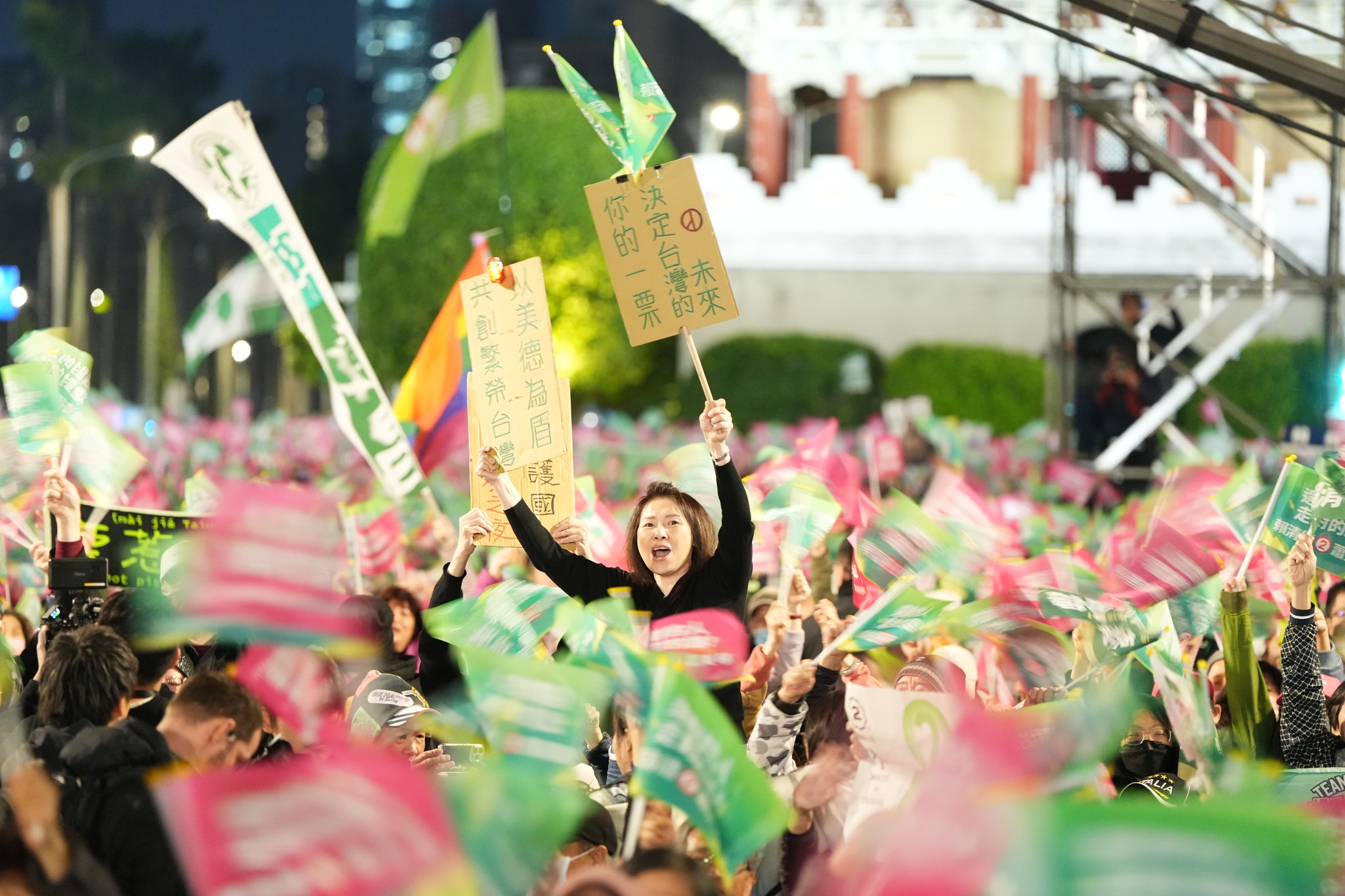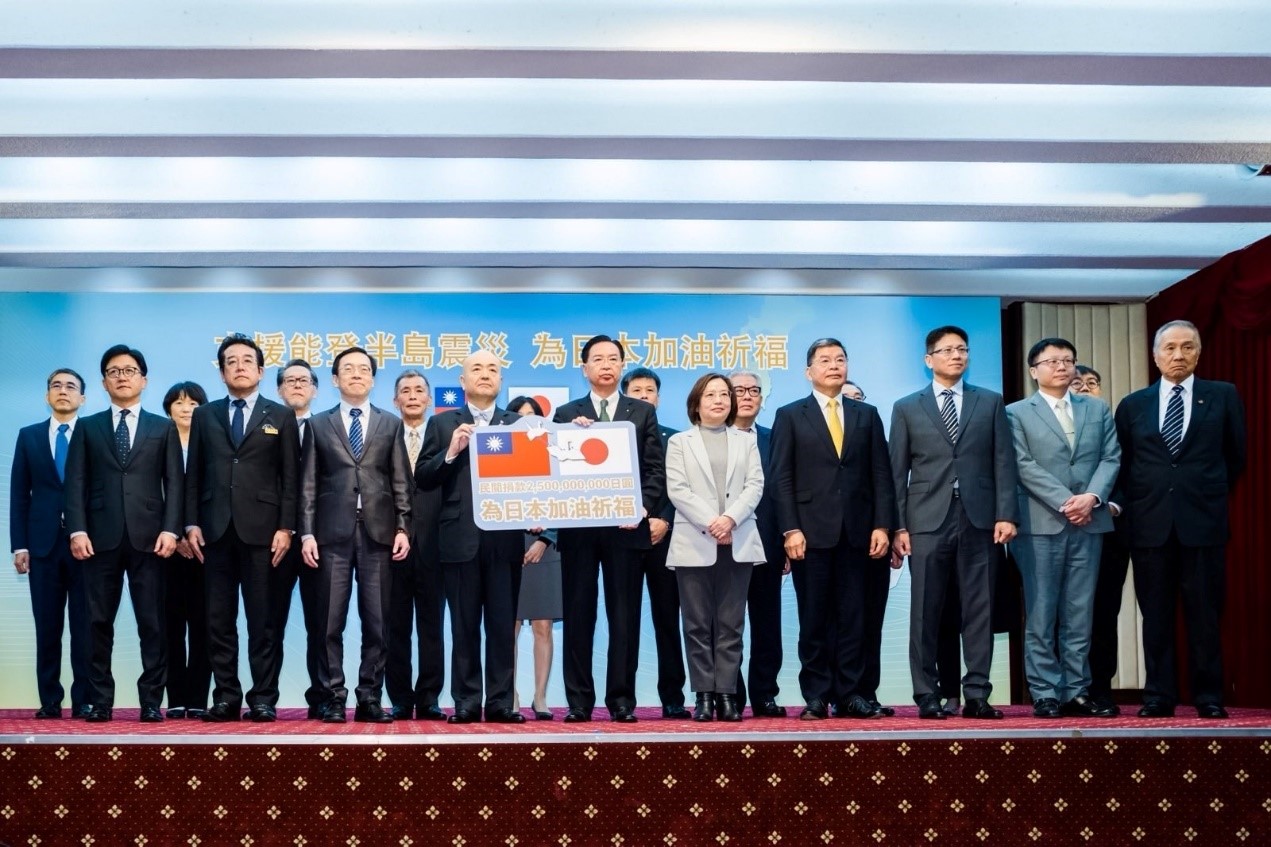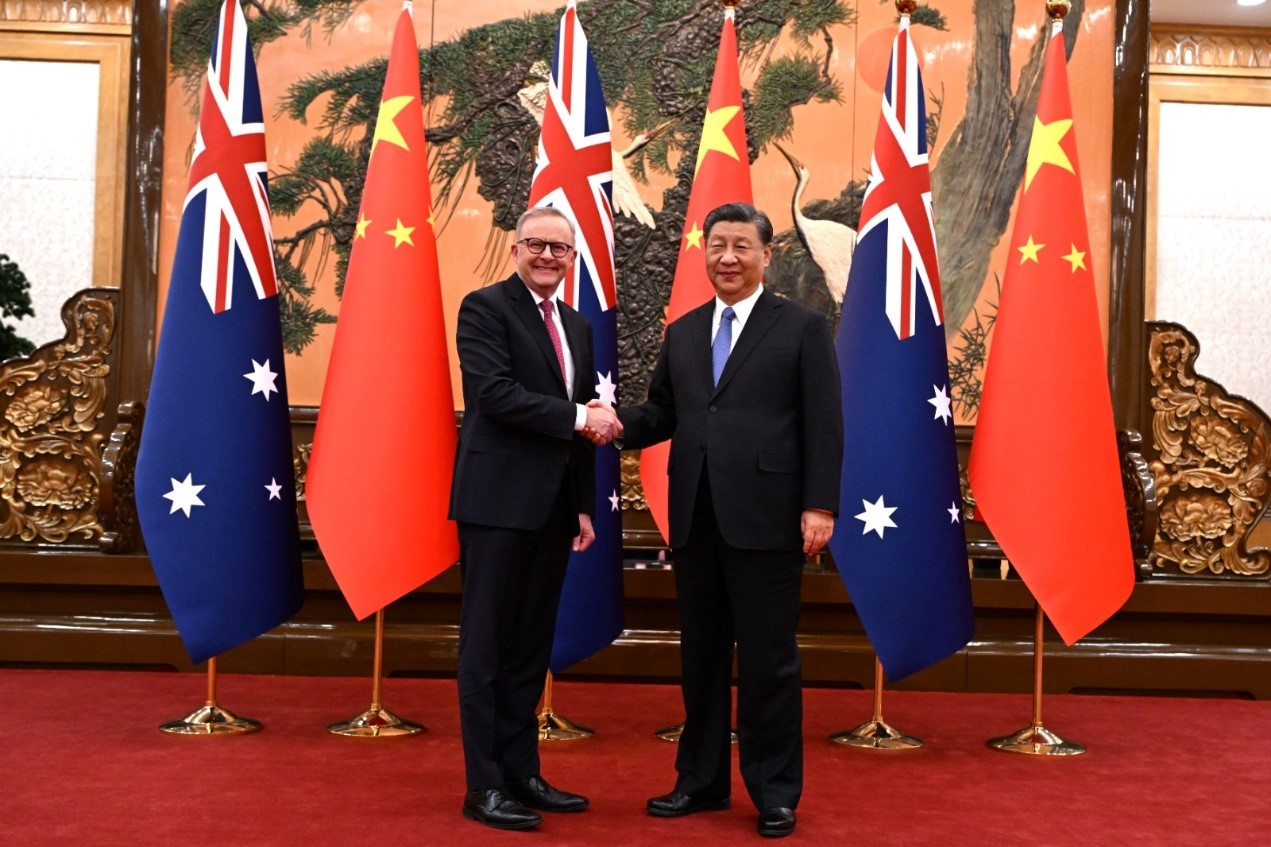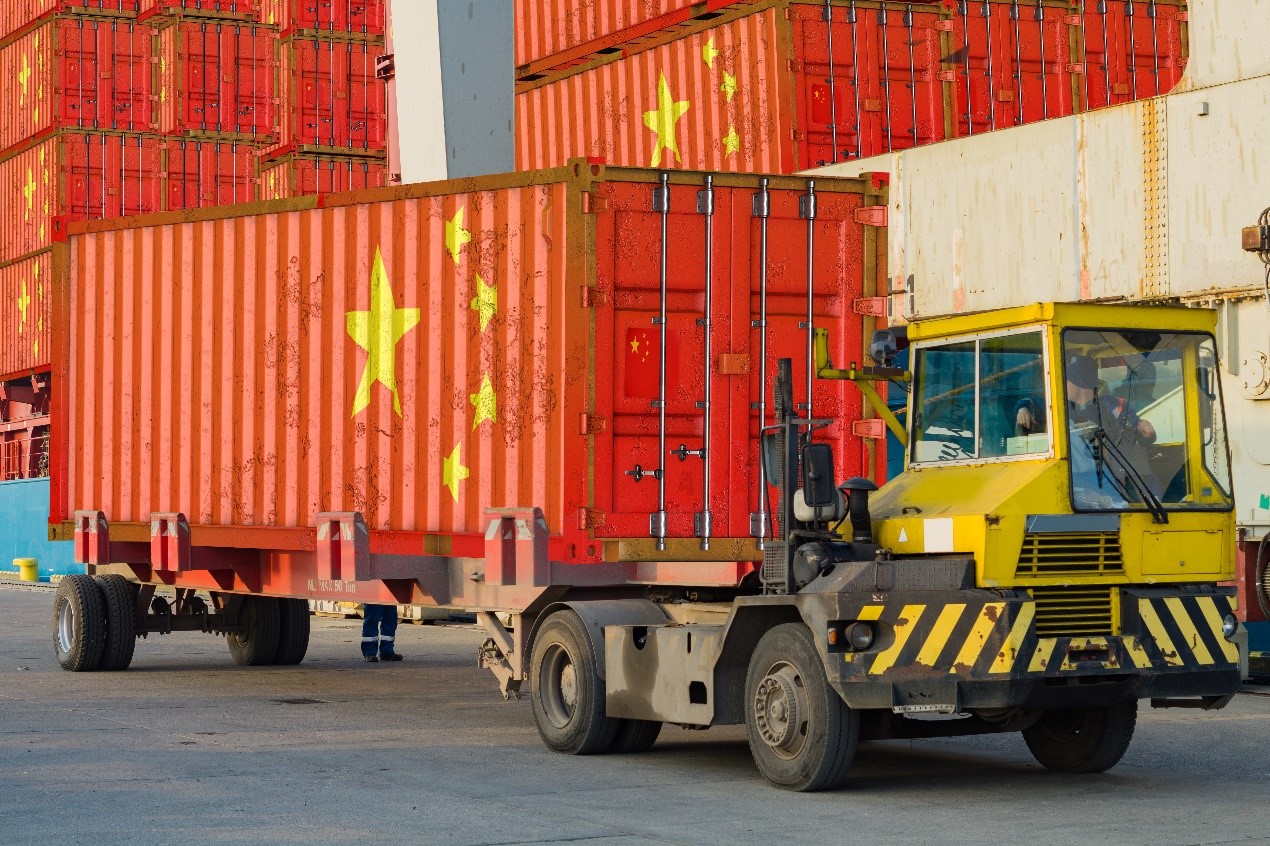From a comparative perspective, Taiwan’s 2024 elections are noteworthy in a number of ways. The election of the Democratic Progressive Party’s Lai Ching-te as president marks the first time a party has won three consecutive presidential terms. Picture source:賴清德、蕭美琴2024競選官方網站, https://taiwan2024.tw/.
Prospects & Perspectives No. 4
Continuity and Change in Taiwan’s Historic 2024 National Elections
By Dafydd Fell
Taiwan’s January 13, 2024, national elections could not have been more different from the first presidential election in March of 1990. On that occasion there was just a single candidate, who was voted in by just 644 members of the National Assembly, the vast majority of whom had last been elected in China in 1947. Since then, Taiwan has held eight direct presidential elections and 10 national parliamentary elections. In just over three decades it has made a transition from being an authoritarian state to one of the world’s top ranked democracies.
The puzzling Tsai Ing-wen second term
From a comparative perspective, Taiwan’s 2024 elections are noteworthy in a number of ways. The election of the Democratic Progressive Party’s (DPP) Lai Ching-te as president marks the first time a party has won three consecutive presidential terms. Previously, second term presidents and their parties have been extremely unpopular. Polls showed Presidents Chen Shui-bian (2000-2008) and Ma Ying-jeou (2008-2016) had very low satisfaction levels in their final years in office and their governments faced large scale anti-government protest movements. Both administrations ended after suffering landslide election defeats first at the local level and then at the national level.
In contrast, what makes the Tsai Ing-wen second presidential term so puzzling is that she has enjoyed relatively high satisfaction rates and the ruling DPP has had much higher levels of party identification than the main opposition party, the Kuomintang (KMT). Internationally Taiwan has been widely praised as one of the world’s most successful countries at coping with the COVID-19 pandemic. Under Tsai, Taiwan was able to avoid the kind of large scale lockdowns and economic recessions that were so damaging in many European countries. Such achievements featured in the DPP’s campaign discourse in 2024. Another part of the answer to this popularity puzzle lies in the failures of the opposition. The KMT has struggled to learn the lessons of electoral defeat and has now lost three consecutive presidential elections. After losing in 2000 and 2004, the KMT embarked on ambitious organizational and policy reforms that contributed to it returning to power in 2008. In contrast, the 2024 campaign showed that on the most influential issue of how to handle relations with China, the KMT’s positions remain largely unchanged from those of the Ma presidency. For instance, the KMT returned to calling for reviving the Cross-Strat Services Trade Agreement, a controversial trade pact that had sparked off one of Taiwan’s largest ever protest movements in 2014, the Sunflower Movement.
The presidential and vice presidential candidates
Lai Ching-te was elected president with just 40 percent of the vote in January 2024, the lowest winning vote share since Chen was elected with 39 percent in 2000. The two opposition presidential candidates won a combined total of 60 percent. Throughout 2023 the polls suggested that a combined opposition candidate would probably defeat the DPP’s presidential ticket. Unsurprisingly then the KMT made a change of ruling parties one of its central appeals in the 2024 elections. There had been a precedent for a joint opposition presidential alliance, as in the 2004 presidential election there was a joint KMT-People First Party ticket. In that case the two parties cemented their cooperation agreement in March of 2003, a year ahead of voting day. For much of the 2023 campaign there were three candidates striving to be the main opposition candidate, these were the KMT’s Hou You-yih, the Taiwan People’s Party’s (TPP) Ko Wen-je and KMT rebel Terry Gou. The KMT and TPP signed a six-point agreement on using polls to achieve a joint candidate just a week before the candidate registration deadline.
However, the agreement soon broke down as the two camps disputed polling methodologies and interpretation of the polls. Despite a dramatic last minute attempt to bring the parties together the day before registration, the KMT and TPP ended up registering separate presidential tickets on November 24. This year was the first time since 2000 that there were three competitive candidates. Although both opposition candidates tried to persuade voters they would be the best placed to defeat the DPP, neither parties’ supporters abandoned them en masse in the final stage of the campaign. While it is hard to be certain whether a united opposition ticket would have won in 2024, the DPP definitely benefitted from the divided opposition.
Vice presidential candidates rarely play a critical role in Taiwan’s elections. However, on this point 2024 was rather different. Many DPP supporters were more enthusiastic about their vice-presidential candidate Hsiao Bi-khim than Lai, with some seeing her as a future presidential candidate. Perhaps the biggest nomination surprise of the campaign was the KMT’s selection of Jaw Shaw-kong as its vice presidential candidate. Jaw had been a legislator and leader of the pro unification New Party in the 1990s but had been away from front line party politics for over two decades and had only recently returned to the KMT. While the DPP’s nomination of Hsiao was an attempt to appeal to younger and more progressive voters, the KMT’s choice of Jaw targeted its older core support base, some of whom had originally been less enthusiastic about Hou.
Campaign issues and appeals
Once the candidates were registered there was much more discussion of policy for the final months of the campaign. On the surface the campaign was less dominated by the China issue than in 2020, when the violent crackdown on protests in Hong Kong was high on the public agenda. However, how best to handle relations with China was the topic that attracted the most attention in the 2024 campaign debates. The KMT tried to frame the election as a choice between war and peace, arguing that it was the best placed to achieve healthy cross-Strait ties. The DPP’s candidate Lai had previously had a reputation as being an “extremist,” owing to his public advocacy for independence. But in the 2024 campaign he was at pains to show his moderation, pledging to maintain President Tsai’s cautious external relations policies. He did, however, warn of the dangers of over-reliance on the Chinese economy and attacked the KMT for calling for a return to the so-called 1992 consensus, equating it to China’s model for unification under the “one country, two systems.”
A number of domestic issues were more salient in 2024 than in previous national elections. One of the biggest areas of dispute in the campaign centered on energy policy, with the KMT attacking the DPP’s target of making Taiwan nuclear free by 2025. The KMT instead called for extending the lifespan of the existing nuclear plants and bringing into operation the mothballed Fourth Nuclear Power station. Even though the DPP did not openly call for an end to the use of the death penalty, this was perhaps the first presidential election in which the KMT’s presidential candidate made support for the death penalty a central campaign appeal. Considering Taiwan’s continued use of the death penalty represents a major issue of concern for the European Union, Hou’s use of this appeal raised alarm bells for some in the diplomatic community in Taipei.
In a number of Taiwan’s recent elections there have been strong conservative campaigns against same-sex marriage and LGBTQ+ rights. However, it appears that by 2023 the climate on gender issues has changed quite radically. In response to the wave of #MeToo revelations in mid-2023, the major parties reached consensus on a range of legislative reforms to deal better with sexual harassment. Change was also apparent in the 2023 Taipei Pride Parade, in which for the first time the DPP’s presidential candidate joined and the two largest opposition parties sent representatives. It was also noteworthy to see Taiwan’s first openly LGBTQ+ legislator elected for the DPP and Taiwan’s first transgender legislative candidate for the Green Party Taiwan.
The parliamentary elections and prospects for a new era of divided government
As has been the case since 2012, Taiwan also held its parliamentary elections on the same day as the presidential contest. While there was only limited change in the parliamentary seats in 2020, 2024 saw a higher level of seats change hands. The KMT emerged as the largest party with 52 seats followed by the DPP with 51 seats and the TPP holding the balance of power with eight seats. Therefore for the first time since 2008 Taiwan will have a period of divided government, with the DPP holding the presidency but lacking a majority in parliament. It remains to be seen whether this will result in a period of highly hostile and polarized inter-party relations or whether the parties can recreate the kind of cooperative inter-party relationship last seen in the Lee Teng-hui era. The hung parliament may also present Taiwan with the opportunity to seek common ground in finding solutions to key challenges facing the country. It should be remembered that during Taiwan’s previous experience of divided government, it saw important breakthroughs in gender equality legislation, social welfare system expansion and electoral system reform.
(Dafydd Fell is Director of the Centre of Taiwan Studies and Professor in Comparative Politics at the Department of Politics and International Studies at SOAS, University of London.)


